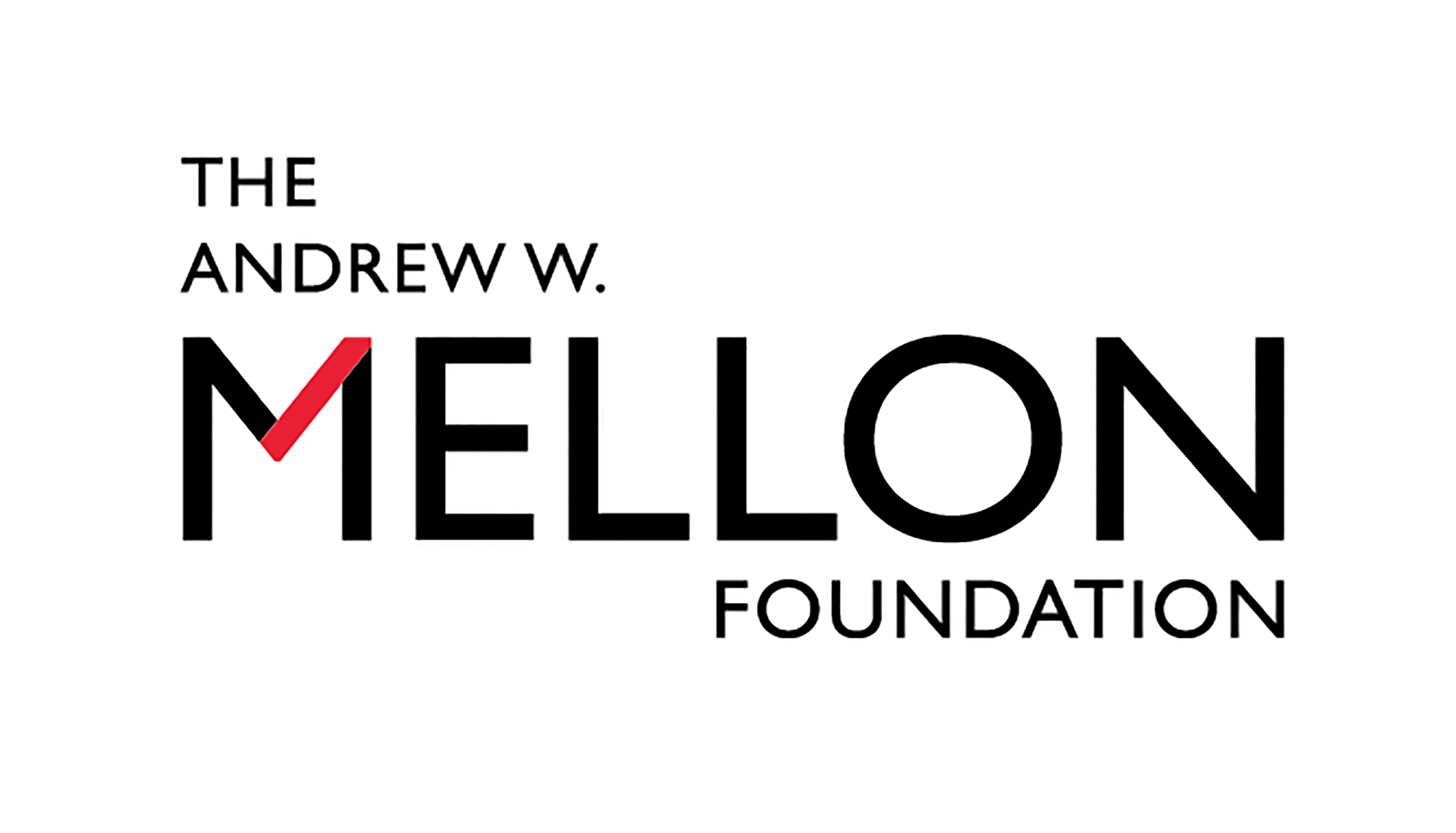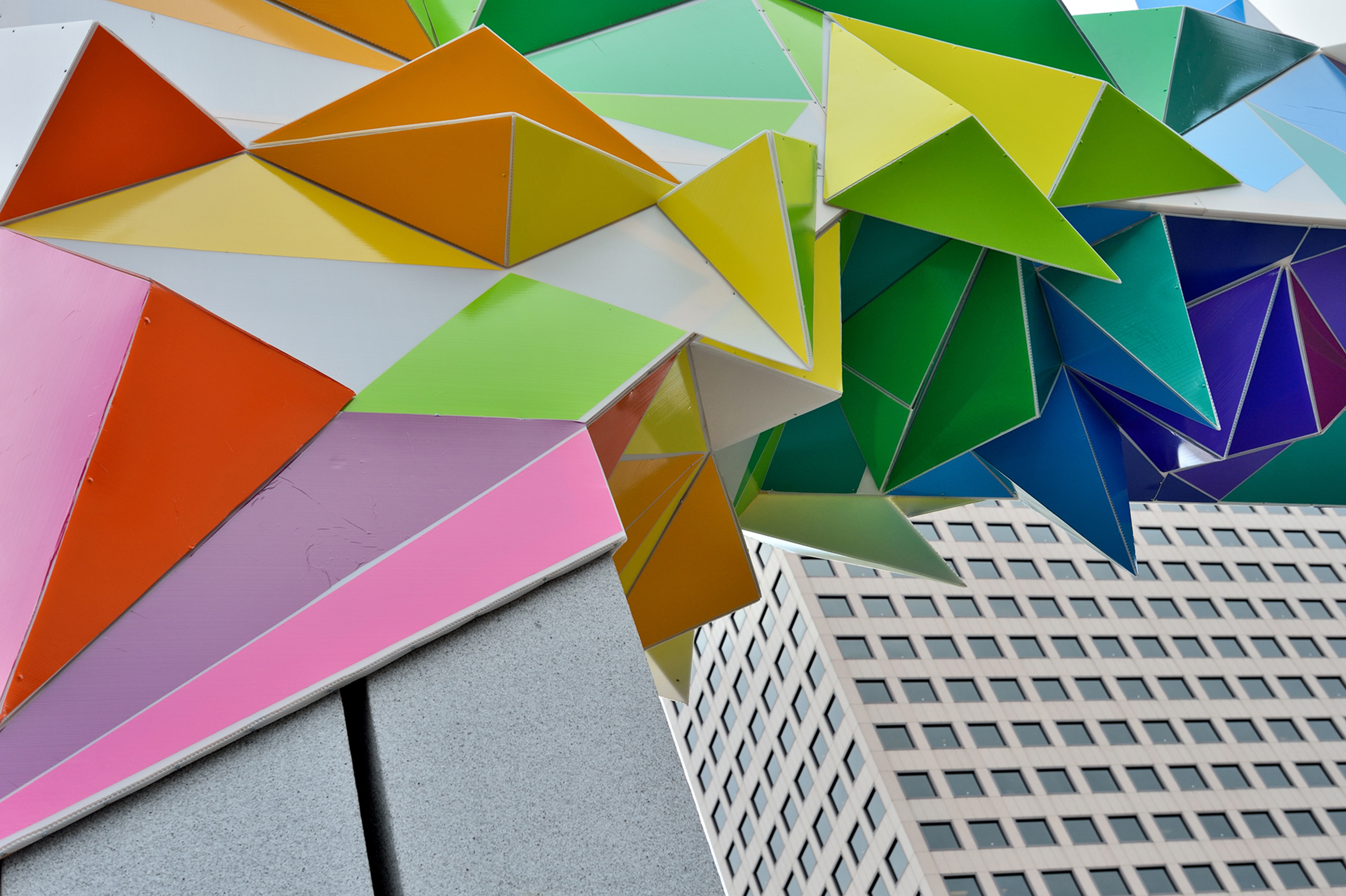Artists at the Community Development Table Online Classroom
-
Register
- Non-member - $150
- Member - Free!
 About this Classroom
About this Classroom
Artists of all kinds have always been powerful influencers in the culture of any society. But the roles of artists are changing as the world both shrinks and expands through new means of communication and media. While many artists will continue to work solely - some are adding the practice of working in collaboration and with communities. This self-guided classroom is designed to provide usable information and research on how artists and arts organizations can deepen the capacity for community development and engagement. It will outline ideas about how to bring creativity and new thought to the conversations artists of all disciplines, local arts agencies, organizations, and their communities are having about how to collaborate across sectors, borders, and boundaries. While there are complexities and many layers to working in this way, these webinars aim to connect threads and make those complexities visible.
There are four modules of learning that are of equal importance and urgency in terms of efficacy and best practices for building and maintaining a creative and culturally competent community. It’s a methodology that considers equity in community culture, artists and agency, partnership and collaboration, and resources for all of the above. Each module contains webinars, interactive worksheets, and quizzes, all aimed at deepening participant's understand of arts-based community development. Participants are encouraged to go complete the course with a group of colleagues and learning partners.
Module 1: Community + Culture + Equity
Module 3: Partnerships and Collaborations
Classroom Learning Objectives
Participants will be able to:
- Articulate a deeper understanding of the concepts of arts-based community development.
- Define the complex layers of community.
- Demonstrate how artists and creative people are part of those communities.
- Embrace the philosophy of “With Not For”- working with and alongside people.
This course is part of Americans for the Arts' Artists at the Community Development Table initiative. Americans for the Arts gratefully acknowledges The Andrew W. Mellon Foundation for its support of this initiative.

Advanced Search This List
-
Contains 2 Component(s)
What do we need to do the work? In arts-based community development, with partners and collaborators across sectors, we look at the possibilities of ‘Arts and ______.’ The arts can be a means to cross sectors to non-arts disciplines, fields, and institutions and to access the funds available in these sectors. We can also look at assets beyond the financial with examining social capital, creative capital, and the validity of the process.
 About this Module
About this Module
Artists at the Community Development Table
What do we need to do the work? In arts-based community development, with partners and collaborators across sectors, we look at the possibilities of ‘Arts and ______.’ The arts can be a means to cross sectors to non-arts disciplines, fields, and institutions and to access the funds available in these sectors. We can also look at assets beyond the financial with examining social capital, creative capital, and the validity of the process.
Participants will:
- Identify what is needed to support community development work.
- Outline multiple sources of support.
- Articulate the differences and the assets of social capital, creative capital, and financial support.
- Examine the concept of and best practices for equity in funding.
This module includes:
- A webinar
- An interactive worksheet
- A quiz

Roseann Weiss
Creative Advisor
Roseann Weiss is a creative advisor and strategist about the intersections of art and community working independently as ART +. She has 30 years of experience in arts leadership in nonprofit arts institutions, community organizations, and gallery settings. Her expertise centers in arts-based community development, community and public arts, artists' professional development, and grant-making. For 14 years, she guided the Community Arts Training (CAT) Institute at the St. Louis Regional Arts Commission, which is an innovative, cross-sector program designed around art as a powerful agent for social change. Among her current projects are Lead Educator for Arts as Civic Engagement program at the Gephardt Institute for Civic and Community Engagement at Washington University and working with Americans for the Arts to create guides, webinars, and workshops for “Artists at the Community Development Table.”
Website: https://www.roseannweiss.com/
Email: roseannweiss@gmail.com

Con Christeson
Community Artist
Con is an artist exploring communities. She experiences community by observing pools of knowledge and experience that exist alongside historical rootedness and the complex concept of place. It is a topographical map of wind, weather, and time. It is the science of hard scape. It is multiple layers of memory and story. It is individual and institutional. It can reinforce or bury the human experience.
Con’s work is at the intersection of space and place, a collaboration between consciousness and creativity. She works locally, nationally, and internationally because those virtual lines drawn by humans on the surface of this planet are not real. And yet, she believes they slow us, confine us, stop us, turn us away from each other.
Email: con-sult@juno.com
-
Contains 2 Component(s)
This module dives into what it takes to work together in arts-based community development. Here we look at what the elements are of both partnership and collaboration. As we lay the groundwork, there are ways to check assumptions and promote understanding as we agree to and manage outcomes and evaluation criteria. Partnerships and collaborations form maps of relationships, actions, and expectations.
 About this Module
About this Module
Artists at the Community Development Table
This module dives into what it takes to work together in arts-based community development. Here we look at what the elements are of both partnership and collaboration. As we lay the groundwork, there are ways to check assumptions and promote understanding as we agree to and manage outcomes and evaluation criteria. Partnerships and collaborations form maps of relationships, actions, and expectations.
Participants will:
- Define and compare what makes a successful partnership and what makes a successful collaboration.
- Explore the concept of power dynamics and how it applies to community development and relationships.
- Review program models that illustrate how to successfully enter, work with, and exit a community.
- Understand the notion of accountability and ‘who holds the stories’ of a community including ethical sharing and archiving in a community.
This module includes:
- A webinar
- An interactive worksheet
- A quiz

Roseann Weiss
Creative Advisor
Roseann Weiss is a creative advisor and strategist about the intersections of art and community working independently as ART +. She has 30 years of experience in arts leadership in nonprofit arts institutions, community organizations, and gallery settings. Her expertise centers in arts-based community development, community and public arts, artists' professional development, and grant-making. For 14 years, she guided the Community Arts Training (CAT) Institute at the St. Louis Regional Arts Commission, which is an innovative, cross-sector program designed around art as a powerful agent for social change. Among her current projects are Lead Educator for Arts as Civic Engagement program at the Gephardt Institute for Civic and Community Engagement at Washington University and working with Americans for the Arts to create guides, webinars, and workshops for “Artists at the Community Development Table.”
Website: https://www.roseannweiss.com/
Email: roseannweiss@gmail.com

Pacia Elaine Anderson
Spoken Word Artist
Like her poetic work, Pacia Elaine Anderson's commitment to community care has its roots in the church. Guided by deeply spiritual elder women who ministered in jails, volunteered as
hospice caregivers, and fostered children, Pacia Elaine learned early that a purposeful life is one that is lived creatively, communally, and in the humble service of others. As an adult, this
self-described Word Artist 's work meets at the intersection of arts-learning and community development, with a focus on youth advocacy and the reclamation of the cultural traditions of
the African Diaspora. Pacia Elaine collaborates as a teaching artist, creative consultant, and community development and engagement strategist with numerous organizations and institutions, both locally and nationally. In 2020 she was named Community Impact Artist by the St. Louis Visionary awards, and serves on the boards of Volunteer Lawyers and Accountants for the Arts, and St. Louis Art Place, an artist housing initiative.
Website: www.paciaelaine.com
Email: paciaanderson@gmail.com
-
Contains 2 Component(s)
What does it mean and what changes when an artist is at the community development table? Here we explicitly look at how artists engage, take risks, invest time, talent, and commitment. And we look at how the community across sectors can understand the value of artists’ perspectives, creativity, and experiences. Creativity help participants reach across the table, move across the street, and across community sectors.
 About this Module
About this Module
Artists at the Community Development Table
What does it mean and what changes when an artist is at the community development table? Here we explicitly look at how artists engage, take risks, invest time, talent, and commitment. And we look at how the community across sectors can understand the value of artists’ perspectives, creativity, and experiences. Creativity help participants reach across the table, move across the street, and across community sectors.
Participants will:
- Identify creativity and the creative process as powerful tools for community development including the notion of “process over product”.
- Define the concept of artists and their personal agency as a powerful element in community context and development.
- Analyze how artists work with communities and what constitutes authentic community engagement.
- Synthesize concepts of communication, culture, creativity, and collaboration as parts of the big picture of community development.
This module includes:
- A webinar
- An interactive worksheet
- A quiz

Roseann Weiss
Creative Advisor
Roseann Weiss is a creative advisor and strategist about the intersections of art and community working independently as ART +. She has 30 years of experience in arts leadership in nonprofit arts institutions, community organizations, and gallery settings. Her expertise centers in arts-based community development, community and public arts, artists' professional development, and grant-making. For 14 years, she guided the Community Arts Training (CAT) Institute at the St. Louis Regional Arts Commission, which is an innovative, cross-sector program designed around art as a powerful agent for social change. Among her current projects are Lead Educator for Arts as Civic Engagement program at the Gephardt Institute for Civic and Community Engagement at Washington University and working with Americans for the Arts to create guides, webinars, and workshops for “Artists at the Community Development Table.”
Website: https://www.roseannweiss.com/
Email: roseannweiss@gmail.com

Con Christeson
Community Artist
Con is an artist exploring communities. She experiences community by observing pools of knowledge and experience that exist alongside historical rootedness and the complex concept of place. It is a topographical map of wind, weather, and time. It is the science of hard scape. It is multiple layers of memory and story. It is individual and institutional. It can reinforce or bury the human experience.
Con’s work is at the intersection of space and place, a collaboration between consciousness and creativity. She works locally, nationally, and internationally because those virtual lines drawn by humans on the surface of this planet are not real. And yet, she believes they slow us, confine us, stop us, turn us away from each other.
Email: con-sult@juno.com
-
Contains 2 Component(s)
In the first module, we begin with terms and concepts that will lead us to develop shared language and shared content. As we begin the process of community development, how do we experience and enable listening and language and get comfortable with authentic engagement and relationship building? We explore the ideas of cultural competency and equity as decisions are made in and about communities. We ask: How do we respect and honor all the stories of these communities?
 About this Module
About this Module
Artists at the Community Development Table
In the first module, we begin with terms and concepts that will lead us to develop shared language and shared content. As we begin the process of community development, how do we experience and enable listening and language and get comfortable with authentic engagement and relationship building? We explore the ideas of cultural competency and equity as decisions are made in and about communities. We ask, "How do we respect and honor all the stories of these communities?"
Participants will:
- Gain an understanding of communication through models and discussion of communication theory.
- Realize the importance of effective communication in developing cultural competency.
- Recognize the multiple roles of community members in inclusive community development.
This module includes:
- A webinar
- An interactive worksheet
- A quiz

Roseann Weiss
Creative Advisor
Roseann Weiss is a creative advisor and strategist about the intersections of art and community working independently as ART +. She has 30 years of experience in arts leadership in nonprofit arts institutions, community organizations, and gallery settings. Her expertise centers in arts-based community development, community and public arts, artists' professional development, and grant-making. For 14 years, she guided the Community Arts Training (CAT) Institute at the St. Louis Regional Arts Commission, which is an innovative, cross-sector program designed around art as a powerful agent for social change. Among her current projects are Lead Educator for Arts as Civic Engagement program at the Gephardt Institute for Civic and Community Engagement at Washington University and working with Americans for the Arts to create guides, webinars, and workshops for “Artists at the Community Development Table.”
Website: https://www.roseannweiss.com/
Email: roseannweiss@gmail.com

Pacia Elaine Anderson
Spoken Word Artist
Like her poetic work, Pacia Elaine Anderson's commitment to community care has its roots in the church. Guided by deeply spiritual elder women who ministered in jails, volunteered as
hospice caregivers, and fostered children, Pacia Elaine learned early that a purposeful life is one that is lived creatively, communally, and in the humble service of others. As an adult, this
self-described Word Artist 's work meets at the intersection of arts-learning and community development, with a focus on youth advocacy and the reclamation of the cultural traditions of
the African Diaspora. Pacia Elaine collaborates as a teaching artist, creative consultant, and community development and engagement strategist with numerous organizations and institutions, both locally and nationally. In 2020 she was named Community Impact Artist by the St. Louis Visionary awards, and serves on the boards of Volunteer Lawyers and Accountants for the Arts, and St. Louis Art Place, an artist housing initiative.
Website: www.paciaelaine.com
Email: paciaanderson@gmail.com
-
Contains 2 Component(s)
What do we need to do the work? In arts-based community development, with partners and collaborators across sectors, we look at the possibilities of ‘Arts and ______.’ The arts can be a means to cross sectors to non-arts disciplines, fields, and institutions and to access the funds available in these sectors. We can also look at assets beyond the financial with examining social capital, creative capital, and the validity of the process.
 About this Module
About this ModuleArtists at the Community Development Table
What do we need to do the work? In arts-based community development, with partners and collaborators across sectors, we look at the possibilities of ‘Arts and ______.’ The arts can be a means to cross sectors to non-arts disciplines, fields, and institutions and to access the funds available in these sectors. We can also look at assets beyond the financial with examining social capital, creative capital, and the validity of the process.
Participants will:
- Identify what is needed to support community development work.
- Outline multiple sources of support.
- Articulate the differences and the assets of social capital, creative capital, and financial support.
- Examine the concept of and best practices for equity in funding.
This module includes:
- A webinar
- An interactive worksheet
- A quiz
Roseann Weiss
Creative Advisor
Roseann Weiss is a creative advisor and strategist about the intersections of art and community working independently as ART +. She has 30 years of experience in arts leadership in nonprofit arts institutions, community organizations, and gallery settings. Her expertise centers in arts-based community development, community and public arts, artists' professional development, and grant-making. For 14 years, she guided the Community Arts Training (CAT) Institute at the St. Louis Regional Arts Commission, which is an innovative, cross-sector program designed around art as a powerful agent for social change. Among her current projects are Lead Educator for Arts as Civic Engagement program at the Gephardt Institute for Civic and Community Engagement at Washington University and working with Americans for the Arts to create guides, webinars, and workshops for “Artists at the Community Development Table.”
Website: https://www.roseannweiss.com/
Email: roseannweiss@gmail.com
Con Christeson
Community Artist
Con is an artist exploring communities. She experiences community by observing pools of knowledge and experience that exist alongside historical rootedness and the complex concept of place. It is a topographical map of wind, weather, and time. It is the science of hard scape. It is multiple layers of memory and story. It is individual and institutional. It can reinforce or bury the human experience.
Con’s work is at the intersection of space and place, a collaboration between consciousness and creativity. She works locally, nationally, and internationally because those virtual lines drawn by humans on the surface of this planet are not real. And yet, she believes they slow us, confine us, stop us, turn us away from each other.
Email: con-sult@juno.com
-
Contains 2 Component(s)
This module dives into what it takes to work together in arts-based community development. Here we look at what the elements are of both partnership and collaboration. As we lay the groundwork, there are ways to check assumptions and promote understanding as we agree to and manage outcomes and evaluation criteria. Partnerships and collaborations form maps of relationships, actions, and expectations.
 About this Module
About this ModuleArtists at the Community Development Table
This module dives into what it takes to work together in arts-based community development. Here we look at what the elements are of both partnership and collaboration. As we lay the groundwork, there are ways to check assumptions and promote understanding as we agree to and manage outcomes and evaluation criteria. Partnerships and collaborations form maps of relationships, actions, and expectations.
Participants will:
- Define and compare what makes a successful partnership and what makes a successful collaboration.
- Explore the concept of power dynamics and how it applies to community development and relationships.
- Review program models that illustrate how to successfully enter, work with, and exit a community.
- Understand the notion of accountability and ‘who holds the stories’ of a community including ethical sharing and archiving in a community.
This module includes:
- A webinar
- An interactive worksheet
- A quiz
Roseann Weiss
Creative Advisor
Roseann Weiss is a creative advisor and strategist about the intersections of art and community working independently as ART +. She has 30 years of experience in arts leadership in nonprofit arts institutions, community organizations, and gallery settings. Her expertise centers in arts-based community development, community and public arts, artists' professional development, and grant-making. For 14 years, she guided the Community Arts Training (CAT) Institute at the St. Louis Regional Arts Commission, which is an innovative, cross-sector program designed around art as a powerful agent for social change. Among her current projects are Lead Educator for Arts as Civic Engagement program at the Gephardt Institute for Civic and Community Engagement at Washington University and working with Americans for the Arts to create guides, webinars, and workshops for “Artists at the Community Development Table.”
Website: https://www.roseannweiss.com/
Email: roseannweiss@gmail.com
Pacia Elaine Anderson
Spoken Word Artist
Like her poetic work, Pacia Elaine Anderson's commitment to community care has its roots in the church. Guided by deeply spiritual elder women who ministered in jails, volunteered as
hospice caregivers, and fostered children, Pacia Elaine learned early that a purposeful life is one that is lived creatively, communally, and in the humble service of others. As an adult, this
self-described Word Artist 's work meets at the intersection of arts-learning and community development, with a focus on youth advocacy and the reclamation of the cultural traditions of
the African Diaspora. Pacia Elaine collaborates as a teaching artist, creative consultant, and community development and engagement strategist with numerous organizations and institutions, both locally and nationally. In 2020 she was named Community Impact Artist by the St. Louis Visionary awards, and serves on the boards of Volunteer Lawyers and Accountants for the Arts, and St. Louis Art Place, an artist housing initiative.Website: www.paciaelaine.com
Email: paciaanderson@gmail.com
-
Contains 2 Component(s)
What does it mean and what changes when an artist is at the community development table? Here we explicitly look at how artists engage, take risks, invest time, talent, and commitment. And we look at how the community across sectors can understand the value of artists’ perspectives, creativity, and experiences. Creativity help participants reach across the table, move across the street, and across community sectors.
 About this Module
About this ModuleArtists at the Community Development Table
What does it mean and what changes when an artist is at the community development table? Here we explicitly look at how artists engage, take risks, invest time, talent, and commitment. And we look at how the community across sectors can understand the value of artists’ perspectives, creativity, and experiences. Creativity help participants reach across the table, move across the street, and across community sectors.
Participants will:
- Identify creativity and the creative process as powerful tools for community development including the notion of “process over product”.
- Define the concept of artists and their personal agency as a powerful element in community context and development.
- Analyze how artists work with communities and what constitutes authentic community engagement.
- Synthesize concepts of communication, culture, creativity, and collaboration as parts of the big picture of community development.
This module includes:
- A webinar
- An interactive worksheet
- A quiz
Roseann Weiss
Creative Advisor
Roseann Weiss is a creative advisor and strategist about the intersections of art and community working independently as ART +. She has 30 years of experience in arts leadership in nonprofit arts institutions, community organizations, and gallery settings. Her expertise centers in arts-based community development, community and public arts, artists' professional development, and grant-making. For 14 years, she guided the Community Arts Training (CAT) Institute at the St. Louis Regional Arts Commission, which is an innovative, cross-sector program designed around art as a powerful agent for social change. Among her current projects are Lead Educator for Arts as Civic Engagement program at the Gephardt Institute for Civic and Community Engagement at Washington University and working with Americans for the Arts to create guides, webinars, and workshops for “Artists at the Community Development Table.”
Website: https://www.roseannweiss.com/
Email: roseannweiss@gmail.com
Con Christeson
Community Artist
Con is an artist exploring communities. She experiences community by observing pools of knowledge and experience that exist alongside historical rootedness and the complex concept of place. It is a topographical map of wind, weather, and time. It is the science of hard scape. It is multiple layers of memory and story. It is individual and institutional. It can reinforce or bury the human experience.
Con’s work is at the intersection of space and place, a collaboration between consciousness and creativity. She works locally, nationally, and internationally because those virtual lines drawn by humans on the surface of this planet are not real. And yet, she believes they slow us, confine us, stop us, turn us away from each other.
Email: con-sult@juno.com
-
Contains 2 Component(s)
In the first module, we begin with terms and concepts that will lead us to develop shared language and shared content. As we begin the process of community development, how do we experience and enable listening and language and get comfortable with authentic engagement and relationship building? We explore the ideas of cultural competency and equity as decisions are made in and about communities. We ask: How do we respect and honor all the stories of these communities?
 About this Module
About this ModuleArtists at the Community Development Table
In the first module, we begin with terms and concepts that will lead us to develop shared language and shared content. As we begin the process of community development, how do we experience and enable listening and language and get comfortable with authentic engagement and relationship building? We explore the ideas of cultural competency and equity as decisions are made in and about communities. We ask, "How do we respect and honor all the stories of these communities?"
Participants will:
- Gain an understanding of communication through models and discussion of communication theory.
- Realize the importance of effective communication in developing cultural competency.
- Recognize the multiple roles of community members in inclusive community development.
This module includes:
- A webinar
- An interactive worksheet
- A quiz
Roseann Weiss
Creative Advisor
Roseann Weiss is a creative advisor and strategist about the intersections of art and community working independently as ART +. She has 30 years of experience in arts leadership in nonprofit arts institutions, community organizations, and gallery settings. Her expertise centers in arts-based community development, community and public arts, artists' professional development, and grant-making. For 14 years, she guided the Community Arts Training (CAT) Institute at the St. Louis Regional Arts Commission, which is an innovative, cross-sector program designed around art as a powerful agent for social change. Among her current projects are Lead Educator for Arts as Civic Engagement program at the Gephardt Institute for Civic and Community Engagement at Washington University and working with Americans for the Arts to create guides, webinars, and workshops for “Artists at the Community Development Table.”
Website: https://www.roseannweiss.com/
Email: roseannweiss@gmail.com
Pacia Elaine Anderson
Spoken Word Artist
Like her poetic work, Pacia Elaine Anderson's commitment to community care has its roots in the church. Guided by deeply spiritual elder women who ministered in jails, volunteered as
hospice caregivers, and fostered children, Pacia Elaine learned early that a purposeful life is one that is lived creatively, communally, and in the humble service of others. As an adult, this
self-described Word Artist 's work meets at the intersection of arts-learning and community development, with a focus on youth advocacy and the reclamation of the cultural traditions of
the African Diaspora. Pacia Elaine collaborates as a teaching artist, creative consultant, and community development and engagement strategist with numerous organizations and institutions, both locally and nationally. In 2020 she was named Community Impact Artist by the St. Louis Visionary awards, and serves on the boards of Volunteer Lawyers and Accountants for the Arts, and St. Louis Art Place, an artist housing initiative.Website: www.paciaelaine.com
Email: paciaanderson@gmail.com



